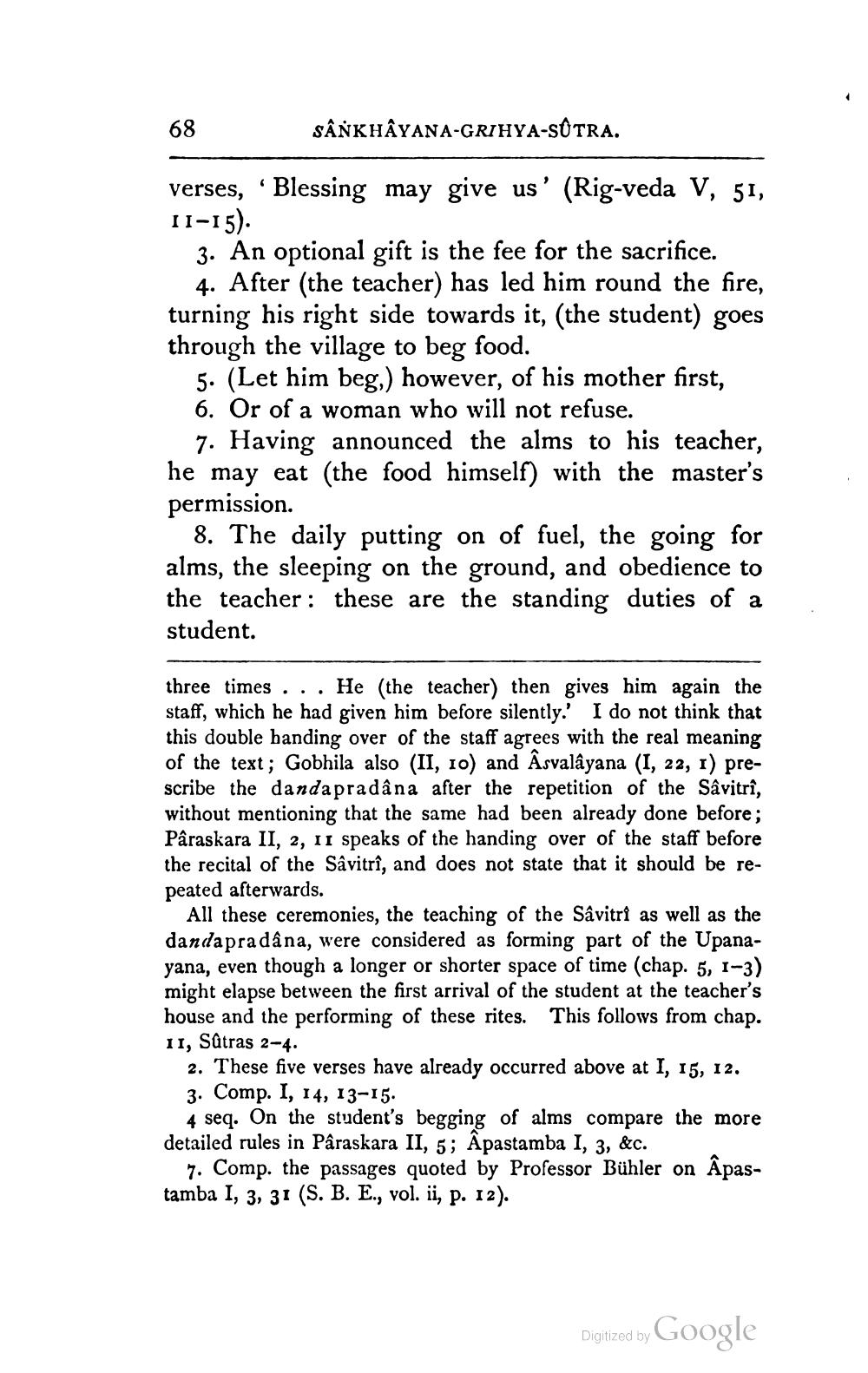________________
68
SANKHAYANA-GRIHYA-SUTRA.
verses, Blessing may give us' (Rig-veda V, 51, 11-15).
"
3. An optional gift is the fee for the sacrifice. 4. After (the teacher) has led him round the fire, turning his right side towards it, (the student) goes through the village to beg food.
5. (Let him beg,) however, of his mother first, 6. Or of a woman who will not refuse.
7. Having announced the alms to his teacher, he may eat (the food himself) with the master's permission.
8. The daily putting on of fuel, the going for alms, the sleeping on the ground, and obedience to the teacher: these are the standing duties of a student.
three times He (the teacher) then gives him again the staff, which he had given him before silently.' I do not think that this double handing over of the staff agrees with the real meaning of the text; Gobhila also (II, 10) and Âsvalâyana (I, 22, 1) prescribe the dandapradâna after the repetition of the Sâvitrî, without mentioning that the same had been already done before; Pâraskara II, 2, II speaks of the handing over of the staff before the recital of the Sâvitrî, and does not state that it should be repeated afterwards.
All these ceremonies, the teaching of the Sâvitri as well as the dandapradâna, were considered as forming part of the Upanayana, even though a longer or shorter space of time (chap. 5, 1-3) might elapse between the first arrival of the student at the teacher's house and the performing of these rites. This follows from chap. II, Sûtras 2-4.
2. These five verses have already occurred above at I, 15, 12. 3. Comp. I, 14, 13-15.
4 seq. On the student's begging of alms compare the more detailed rules in Pâraskara II, 5; Apastamba I, 3, &c.
7. Comp. the passages quoted by Professor Bühler on Âpastamba I, 3, 31 (S. B. E., vol. ii, p. 12).
Digitized by Google




